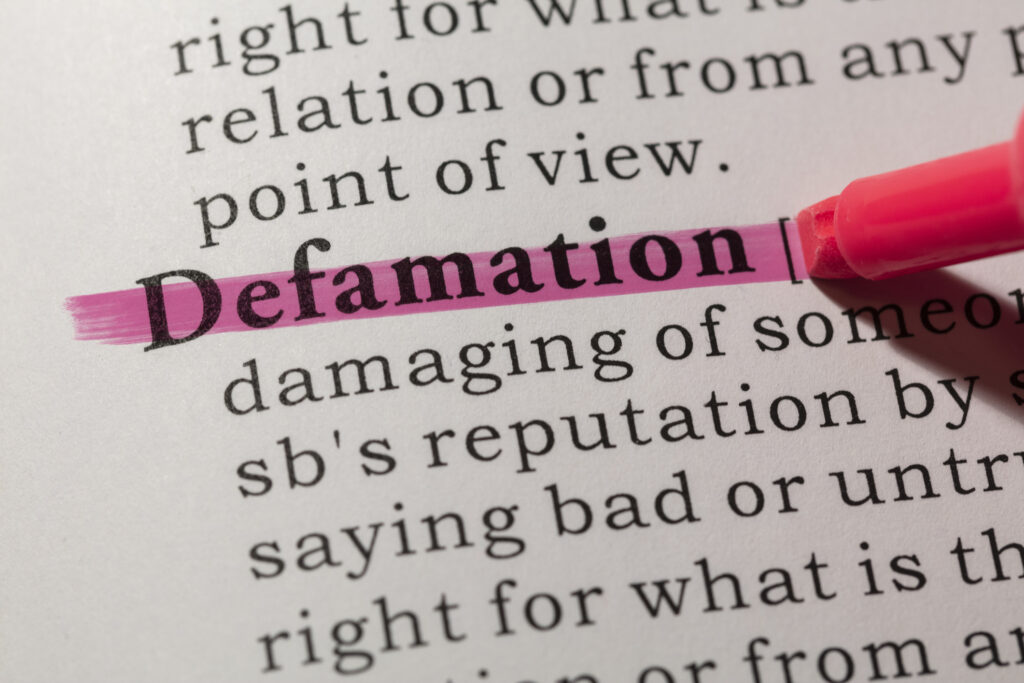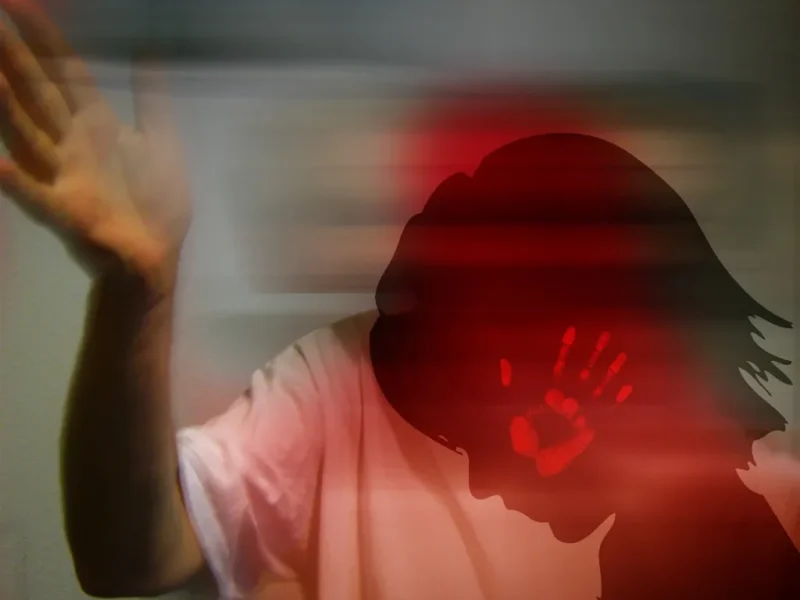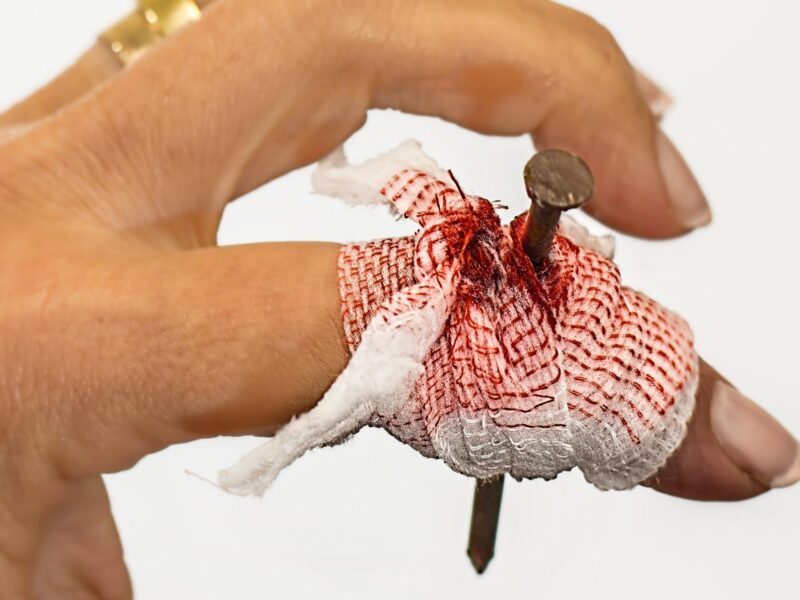To the
Landesgericht Innsbruck Maximilianstraße 4 A-6020 Innsbruck
Re: Offenses under § 146 and § 147 StGB
Objection to the Indictment
In the present criminal matter, the defendant hereby lodges an objection to the indictment of the Innsbruck Public Prosecutor’s Office, which was served to her on xxx, within the 14-day period from the date of service, pursuant to the grounds for objection under:
- § 212 para. 1 StPO;
- § 212 para. 2 StPO; and
- § 212 para. 3 StPO;
and substantiates this objection as follows:
Regarding § 212 para. 1 StPO:
The appellant preliminarily asserts that the factual circumstances alleged by the Public Prosecutor’s Office in the contested indictment do not constitute an offense under the substantive criminal law. According to the invoked ground for objection, an objection must be upheld, among other things, whenever the factual circumstances alleged by the Public Prosecutor’s Office, even if hypothetically assumed to be correct, do not fulfill the elements of at least one criminally punishable act (Birklbauer/Mayrhofer in Fuchs/Ratz, WK StPO § 212). This is indeed the case here.
The elements of an offense include both the objective and subjective aspects. Specifically, in the case of procedural fraud, the subjective aspect requires that the perpetrator knowingly deceives the court or the deciding judge about facts to obtain a judgment that results in damage to the opposing party. A key element on the subjective side is the perpetrator’s knowingly false statements, which are intended to cause such consequences in the proceedings. It must also be assumed that the perpetrator of procedural fraud already meets these subjective requirements at the time of initiating the said proceedings. For at that time, the perpetrator must have the intent to achieve such procedural fraud through his statements or lawsuit.
Such prerequisites, however, are not even remotely discernible in the present case of the appellant, even based on the alleged facts.
The Public Prosecutor’s Office cites the contents of the mutual submissions in the mentioned civil proceedings only incompletely and fails to consider that the appellant’s claims at the beginning of the said civil proceedings were presented entirely differently from what is now alleged in the indictment.
The Public Prosecutor’s Office overlooks the fact that the appellant initially filed a request for an accounting in the said civil proceedings, as the defendant in the civil case had not provided her with any documents regarding their account relationships up to that point. Only after these documents were submitted was the claim for performance formulated. Therefore, if the Public Prosecutor’s Office argues that the appellant had planned from the beginning to deliberately present false statements and fraudulently achieve a favorable judgment, this intention is contradicted by the further content of the civil case file, which the Public Prosecutor’s Office ignored. For instance, the appellant did not mention or claim in her lawsuit that a forged power of attorney existed, especially since she was not aware of such a document at that time.
Only during the course of the proceedings did the opposing parties present this power of attorney and claim that the transactions on the plaintiff’s accounts were covered by this power of attorney.
However, at the beginning of the civil proceedings, the plaintiff could not have planned, with the intent of committing an offense, to obtain any benefits by presenting false facts, as reflected in her statements.
Rather, the appellant contested the general power of attorney presented by the opposing parties during the ongoing proceedings as fraudulent, stating that she had never signed such a document at any time.
Similarly, the situation was the same for all those documents which, from the prosecutor’s perspective, were allegedly signed by the appellant, and about which she supposedly falsely claimed that the signatures were not hers. For these documents were also only presented by the opposing parties during the ongoing proceedings after a prior request for an accounting, which means that the appellant could not have been aware of these documents at the time the proceedings were initiated.
Given these circumstances, there is no basis for assuming intent to commit procedural fraud.
Because for such intent, as mentioned above, the appellant would have had to act fraudulently at the time of initiating the proceedings based on deliberately false statements. However, this can be practically excluded based on the contents of the civil file.
In truth, the documents now being used by the prosecutor against the appellant were not presented by her to support her claim and labeled as forged to achieve her claim. Rather, all these documents were presented by the opposing parties following a prior request for an accounting, whereupon the appellant contested parts of these documents as fraudulent, as she is entitled to do in a civil process. In this case, according to the civil procedure rules, the burden of proof lies with the opposing parties to demonstrate that the documents contested by the appellant as fraudulent are indeed genuine, especially considering the various copies and reproductions presented by the opposing parties.
Following this, from the appellant’s perspective, it is fundamentally excluded to assume the intent required for committing procedural fraud. It is particularly incomprehensible to accuse the appellant of procedural fraud based on her contestation of the authenticity of the documents presented by the opposing parties. Just as in the aforementioned civil proceedings, it is now up to the prosecutor to prove that all the documents contested by the appellant as fraudulent are indeed genuine and that the appellant made deliberately false statements based on this.
There is practically nothing in the indictment regarding such circumstances. Neither is there a suitable factual basis nor are there any corresponding pieces of evidence that could even begin to establish such a factual basis.
If we consider the factual elements as presented by the Innsbruck prosecutor in the contested indictment, a conviction for procedural fraud is, from the appellant’s perspective, excluded due to the absence of the necessary legal elements. The mere fact that she disputes the authenticity of documents presented by the opposing parties during the proceedings does not constitute procedural fraud, neither on the objective nor the subjective side of the offense. As previously mentioned, proving the required intent at the time of filing the lawsuit by the appellant would be necessary, which the prosecutor has not demonstrated, nor is it evident from the circumstances.
Regarding § 212 Section 2 of the Austrian Code of Criminal Procedure (StPO):
This ground for objection is essentially met when the facts ascertained by the prosecutor are insufficient to make a conviction of the accused even remotely possible. According to established case law, a simple probability of conviction is required to allow an indictment. An objection should always be upheld if, despite the prosecutor’s previous investigations, the urgency and weight of the suspicion do not suffice to make a conviction appear even remotely possible under a realistic view (Birklbauer/Mayrhofer in Fuchs/Ratz, WK StPO § 212). Should the court not follow the objection based on the arguments in point 1, this ground for objection is certainly fulfilled.
The prosecutor bases their indictment solely on the results of the civil proceedings conducted before the Innsbruck Regional Court in the first instance, case 6 Cg 158/14t. The prosecutor correctly notes in the indictment that there is still no final decision in this civil case, with an appeal currently pending before the Innsbruck Higher Regional Court. The prosecutor has not conducted any independent investigations of any kind, neither obtaining expert reports nor interviewing or questioning any witnesses. Instead, the prosecutor relies on the evidence from the mentioned civil proceedings and has otherwise remained inactive.
In her response, the appellant repeatedly pointed out that she contested all the foundations that the prosecutor now uses to justify the indictment as incorrect in the civil proceedings. Therefore, it remains to be seen to what extent the first-instance judgment and the results of the first-instance civil proceedings will actually hold. From the appellant’s perspective, it is incomprehensible for the prosecutor to regard the results from the first-instance civil proceedings as “set in stone” in anticipation of the appeal decision and to file an indictment against the appellant on this basis.
Regardless of these fundamental considerations, it must be assumed that a conviction of the appellant cannot be achieved based on the circumstances highlighted in the indictment when viewed realistically.
The prosecutor lists her suspicions against the appellant on page 9, under section VI. It should be noted that it is the prosecutor’s responsibility, as the prosecuting authority, to prove the guilt of the appellant. It is not the appellant’s responsibility to prove her innocence based on unsubstantial and insufficient evidence or general accusations by the prosecutor.
Where the prosecutor claims on page 9 that the appellant falsely labeled signatures on presented settlement documents as forgeries, the prosecutor fails to specify the evidence from which such a suspicion should arise.
In the mentioned civil case file of the Innsbruck Regional Court, there is a court expert report that, according to the appellant’s appeal arguments, was not prepared in accordance with the law.
Furthermore, the civil case file contains a private expert report provided by the appellant from a recognized forensic handwriting expert. This report clearly demonstrates the deficiencies of the court expert report in the civil proceedings. This is also a key issue in the pending appeal before the Innsbruck Higher Regional Court. Contrary to the prosecutor’s assertion in the indictment that the alleged criminal behavior of the appellant is derived from this court expert report in the civil proceedings, this is not the case. It should also be emphasized that the prosecutor has not independently sought expert clarification regarding the disputed documents and relies blindly on the said court expert report, without considering the additional expert report in the file, which exonerates the appellant.
The prosecutor further claims that the creation of an objective report failed due to the appellant’s conduct and that this was intentional on her part. However, the prosecutor provides no evidence to support this incomprehensible accusation. The appellant complied with all requests made by the court expert in the civil proceedings, including producing numerous comparison signatures in the expert’s presence and providing numerous comparison documents bearing her undisputed signature. It remains entirely unclear what else the appellant could have done to facilitate an objective evaluation.
In any case, it must be stated here that, based on the expert report in the mentioned civil case file, a possible conviction of the appellant is de facto impossible.
If a criminal trial were to proceed, the appellant would naturally oppose the reading and use of this entirely inadequate report by Mr. F. and would request that a new court expert report related to the criminal trial be obtained from a suitable handwriting expert. The prosecutor must prove that the signature on the mentioned general power of attorney is indeed the appellant’s and that she made deliberately false statements in this context. Based on the content of the civil case file, a conviction based solely on the aforementioned inadequate expert report is de facto excluded. Additionally, the prosecutor has not obtained a separate expert report during the investigation that could support the likelihood of a conviction. Therefore, there is currently no evidence to prove that the appellant deliberately falsely claimed that the signature on the general power of attorney was not hers.
On page 9 under point a) of the indictment, the prosecutor lists a series of documents from the civil proceedings and claims that the appellant deliberately falsely asserted that all these documents were forgeries. Furthermore, the prosecutor argues that the appellant’s statements were “not credible and implausible.” However, the prosecutor fails to provide concrete evidence to support the claim that the appellant deliberately lied, and such evidence is also not found in the civil case file. The court expert only examined the signature on the general power of attorney and provided a report on that, not on other documents and records.
Without delving into the various documents, the prosecutor fails to recognize that it is not the appellant’s obligation to prove that she did not sign these documents. Rather, it is the prosecutor’s responsibility to provide sufficient evidence that these signatures are indeed the appellant’s and that she therefore deliberately lied in the civil proceedings. It should also be noted that, except for a few exceptions, the documents cited by the prosecutor are photocopies or reproductions, not originals. Therefore, proving that the signatures on these documents are actually the appellant’s will be very difficult.
In any case, the prosecutor does not show in the indictment on what evidence it would be established in the upcoming criminal trial that the handwritten notes and signatures on these documents are actually from the appellant, given that she consistently denied this in the civil proceedings.
The prosecutor’s reasoning in the indictment concerning the documents listed from page 9 onwards is that it is “not credible” for the appellant to claim that she did not sign these documents. However, the prosecutor does not provide any evidence in the entire indictment to prove that these documents were indeed signed by the appellant.
It must be fundamentally noted that the appellant had the right in the civil proceedings to dispute or acknowledge the authenticity of documents presented by the opposing parties, not by herself. The appellant acted to the best of her knowledge and belief, acknowledging documents she believed were genuinely signed by her and disputing those she did not. According to civil procedural rules, it was up to the opposing parties to prove the authenticity of the documents they presented. The prosecutor fails to mention these circumstances, especially that all the documents she now bases her indictment on were presented by the opposing parties, not by the appellant.
In summary, without going into great detail, it can be stated that the prosecutor attempts to support the allegations against the appellant with the above-mentioned documents, which she assumes to be authentic. The prosecutor argues that the appellant’s statements regarding these documents are unbelievable and implausible, without providing a single piece of concrete evidence to show that all these documents were indeed signed by the appellant or that the handwritten notes on these documents were made by her.
On this basis, however, an indictment is not possible, especially since it is the responsibility of the prosecution to substantiate the allegations against the accused with concrete evidence and to demonstrate that, based on this evidence, there is a corresponding likelihood of conviction.
As initially stated, a conviction of the appellant in this case would only be conceivable if the prosecutor sufficiently proves that all the documents, including the described general power of attorney, were indeed signed or annotated by the appellant, and that the appellant knowingly made false statements to the contrary in the said civil proceedings. However, the indictment lacks any basis for such an assumption, particularly sufficient evidence. Overall, the indictment appears to be merely a collection of conjectures and accusations without being able to name concrete evidence for the allegations against the appellant. It should be emphasized once again that phrases like “the appellant’s statement is incredible and implausible” are not sufficient to provide the necessary proof for a conviction that the appellant acted criminally.
Considering all these circumstances in relation to the present indictment, it becomes relatively clear that, based on the facts and the evidence provided by the prosecutor, a conviction of the appellant according to the allegations made by the prosecutor is de facto impossible.
If the prosecutor’s request were to be followed, it would essentially mean that in every civil lawsuit, the losing party would be charged with procedural fraud. In practice, the situation in almost every civil case is such that the court has to assess differing statements from the parties and make a decision based on that. In the vast majority of cases, civil courts argue during the evaluation of evidence that the statements and arguments of one party are considered not credible or plausible, and therefore the opposing party’s statements are accepted as true. However, building on this to file a charge of procedural fraud is not a serious proposition, as it requires a sufficiently clear and evidence-backed factual basis demonstrating that a party knowingly and deliberately attempted to deceive the court from the outset. Such a basis is not evident from the contested indictment, particularly due to the lack of suitable evidence that could substantiate the prosecutor’s allegations. Therefore, the appellant considers the present indictment to be inadmissible under § 212 Section 2 of the Austrian Code of Criminal Procedure (StPO) and believes the objection should be upheld on these grounds as well.
Regarding § 212 Section 3 of the StPO:
Should the court not uphold the objection based on the reasons outlined above, the appellant also considers the objection under Section 3 of § 212 StPO to be fulfilled.
For this case, it must be noted that the prosecutor has not sufficiently clarified the relevant facts.
According to consistent case law, the investigation results of the prosecutor’s office form a sufficient basis for conducting a main hearing if a simple suspicion of a crime suggests a conviction. For this, the weight of the incriminating and exculpatory evidence must, when considered together, make a conviction reasonably probable. The scientific probability must thus be more than 50%, applying an objective standard. Moreover, the investigations must be sufficiently advanced to justify ordering a main hearing, meaning that the relevant evidence for the main hearing can be reviewed and prepared in such a way that it can be presented without significant delay (Birklbauer/Mayrhofer in Fuchs/Ratz, WK StPO § 212).
Applying these criteria to the contested indictment, it is evident that the prosecutor’s office has not conducted sufficient clarifications and investigations to date. Regarding the handwriting expert report by Expert F. obtained in the civil proceedings, which the prosecutor seems to rely on as the main evidence against the appellant, it must be noted that this report was not prepared according to the legal standards applicable in both civil and criminal proceedings. According to the prosecutor’s presentation, the expert used numerous comparison signatures from the appellant, all of which are undisputedly genuine. However, the signature in question was determined not to be from the appellant. Following the expert report, the opposing parties submitted numerous documents, which were again forwarded to the expert. Despite many of these documents being contested by the appellant as forgeries, the expert effectively assumed them to be genuine and consequently changed his opinion. Thus, the expert judged a signature not from the appellant based on comparison signatures also not from the appellant. This flawed and legally non-compliant procedure was highlighted by the appellant in the appeal proceedings before the Higher Regional Court of Innsbruck. The prosecutor’s indictment completely ignores the private expert report provided by the appellant in the civil case, in which a recognized forensic handwriting expert clearly and comprehensively demonstrates the significant deficiencies in Expert F.’s report. This expert particularly emphasized that a handwriting comparison report must always use undisputed comparison materials; otherwise, it is not valid. Therefore, the civil case file contains two reports: one incriminating the appellant and the other exonerating her.
Furthermore, it should be noted that in any forthcoming criminal trial, the reading of Expert F.’s report cannot occur without the appellant’s consent, necessitating the acquisition of an independent report for the criminal proceedings. Based on this, the current stage cannot derive a sufficient likelihood of conviction solely from Expert F.’s report.
Consequently, the contested indictment cannot serve as a basis for a prosecution since it is the prosecutor’s responsibility to substantiate the charges against the accused with concrete evidence and to show that, based on this evidence, there is a corresponding likelihood of conviction. Given the inadequate clarifications and investigations, the prosecutor’s office has not met this requirement, making the indictment inadmissible under § 212 Section 2 of the Austrian Code of Criminal Procedure (StPO). The objection should be upheld for these reasons.
The two expert reports in the case file cancel each other out, and there is no other basis to support the allegation that the signature on the aforementioned general power of attorney actually belongs to the appellant.
Since the primary evidence used by the prosecutor, the expert report by F., will certainly not be read at the main hearing, the prosecutor should have already obtained a neutral expert report during the investigation to potentially bring forth an indictment. Given the current state of the case file, it is clear that a corresponding expert report will be necessary in any upcoming criminal trial, which should have been evident to the prosecutor during the investigation phase. Thus, the present proceedings cannot be conducted without significant delays, as the court would have to compensate for the shortcomings attributable to the prosecutor. It is important to emphasize once again that the prosecutor has conducted no investigations whatsoever and bases the indictment solely on the contents of a civil case file, which has not yet resulted in a final decision.
The situation is even more glaring concerning the additional evidence that the prosecutor presents as incriminating for the appellant in the contested indictment.
The prosecutor’s indictment relies on various documents submitted by the appellant’s opponents in the civil proceedings, which the appellant has disputed as forgeries. There is no corresponding evidence in the entire civil case file to prove that the documents disputed by the appellant as forgeries are indeed genuine or signed by her. Even in the already inadequate expert report by Expert F., nothing is recorded in this regard because the scope of the expert’s assignment did not include such verification. The prosecutor’s repeatedly stated reasoning that the appellant’s denials and statements are not credible and not understandable can hardly justify a criminal conviction. Instead, it will be necessary to substantiate the prosecutor’s claims with appropriate evidence.
If the prosecutor genuinely believes that all the documents cited from page 9 onwards in the indictment are genuine and that the appellant falsely claimed they were forgeries, this must be supported by an appropriate expert report or other evidence. However, the prosecutor does not offer such evidence in the indictment, nor is there any indication of how such proof could be established based on the current investigation results. Thus, there is currently no likelihood of conviction concerning these documents that exceeds 50%.
Fundamentally, the present indictment is objectionable because the prosecutor, as already mentioned, has not conducted any independent investigations or clarifications. The prosecutor bases the indictment on the contents of a civil case file, which has not yet resulted in a final decision, and has not undertaken any investigative actions themselves. A diligent prosecutor is expected to make the legally required clarifications regarding potential charges and to gather both incriminating and exculpatory evidence to subsequently decide whether to bring an indictment. It is unacceptable for an indictment to repeatedly state that the appellant’s statements and arguments in the civil proceedings are not credible and not understandable, thereby implying that documents not yet proven genuine are genuine.
A diligent prosecutor should conduct the necessary investigative actions, particularly obtaining corresponding expert reports, to substantiate their suspicions. It is unacceptable to do practically nothing and to base the indictment on phrases like “not credible or not understandable.” Overall, an objective review of the present indictment at this stage cannot lead to the conclusion that a conviction probability for the appellant regarding the alleged procedural fraud would exceed 50%. On the contrary, given the current investigation results, the opposite is almost certain.
If the objection is not upheld based on the aforementioned reasons, the current objection ground should be addressed, and the indictment should be provisionally returned to the prosecutor for further necessary clarifications.
Therefore, the appellant submits the following
Request
To uphold the present objection and to discontinue the proceedings against the appellant
Alternatively
To uphold the present objection and return the indictment to the prosecutor for further investigation and clarification.

Attempting to clear oneself from an unjust suspicion is either
Marie Freifrau von Ebner-Eschenbach
unnecessary or futile.







